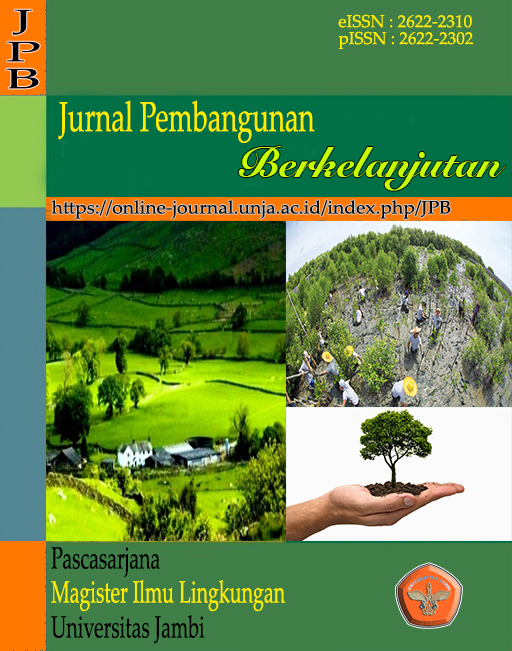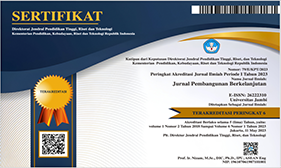Kearifan Lokal Dalam Pengelolaan Hutan Adat Di Desa Rantau Kermas Kecamatan Jangkat Kabupaten Merangin
DOI:
https://doi.org/10.22437/jpb.v5i1.18665Abstract
The law tradition of society is a community of people who conduct their daily lives very close to the nature environment, moreover in various of academic literature in the law tradition of society is often considered as part of dynamics nature environment, so the wisdom of law tradition society as part of life that really needs to be expressed.As general, this research to purposed analyze the local wisdom related with arrangement, usage, and protection of traditional forest in Rantau Kermas village, ex. Serampas clan, Jangkat Subdistrict. The research was conducted in the Rantau Kermas village, ex. Serampas clan used Snowball sampling method or Snowball sampling used informants by way of non- probability. The result of this research, it was shown in society life have many traditional knowledge that underlines the formation of one value in every day life. The knowledge passed down from one generation to generation with developed as balanced in interaction with environment. Related to this research have some conclusions in the management of traditional forest as follows : the local wisdom associated with traditional forest arrangement, the local wisdom asoociated with traditional forest usage, and the local wisdom associated with traditional forest protection.
Downloads
Downloads
Published
How to Cite
Issue
Section
License
Copyright (c) 2022 Jurnal Pembangunan Berkelanjutan

This work is licensed under a Creative Commons Attribution 4.0 International License.
1. Authors retain copyright and grant the journal right of first publication with the work simultaneously licensed under a Creative Commons Attribution 4.0 International License that allows others to share the work with an acknowledgement of the work's authorship and initial publication in this journal.
2. Authors are able to enter into separate, additional contractual arrangements for the non-exclusive distribution of the journal's published version of the work (e.g., post it to an institutional repository or publish it in a book), with an acknowledgement of its initial publication in this journal.
3. Authors are permitted and encouraged to post their work online (e.g., in institutional repositories or on their website) prior to and during the submission process, as it can lead to productive exchanges, as well as earlier and greater citation of published work (The Effect of Open Access)











